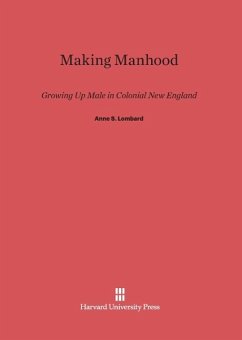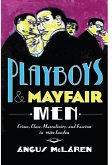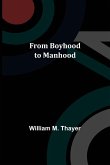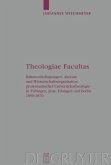Countering our image of early Anglo-American families as dominated by harsh, austere patriarchs, Anne Lombard challenges long-held assumptions about the history of family life by casting a fresh look at the experience of growing up male in seventeenth- and eighteenth-century New England. Drawing upon sources ranging from men's personal writings to court records to medical literature, Lombard finds that New England's Puritan settlers and their descendants shared a distinctive ideal of manhood that decisively shaped the lives of boys and men.
At its core was a suspicion of emotional attachments between men and women. Boys were taken under their father's wing from a young age and taught the virtues of reason, responsibility, and maturity. Intimate bonds with mothers were discouraged, as were individual expression, pride, and play. The mature man who moderated his passions and contributed to his family and community was admired, in sharp contrast to the young, adventurous, and aggressive hero who would emerge after the American Revolution and embody our modern image of masculinity.
Lombard writes with empathy and sensitivity of colonial life and the ways in which it interacted not only with male experience but also with the larger political history of eighteenth-century America.
At its core was a suspicion of emotional attachments between men and women. Boys were taken under their father's wing from a young age and taught the virtues of reason, responsibility, and maturity. Intimate bonds with mothers were discouraged, as were individual expression, pride, and play. The mature man who moderated his passions and contributed to his family and community was admired, in sharp contrast to the young, adventurous, and aggressive hero who would emerge after the American Revolution and embody our modern image of masculinity.
Lombard writes with empathy and sensitivity of colonial life and the ways in which it interacted not only with male experience but also with the larger political history of eighteenth-century America.
Lombard opens up new vistas on how white Americans took the measure of men from the 1680s through the Revolutionary period. This is an eminently readable book, full of debt comparisons with our comtemporary preoccupations with masculinity.
A major, and wonderful, book, Making Manhood reinterprets American masculinity through the lens of early modern history and reinterprets the American Revolution through the lens of masculinity. Readable and engaging, this is a compelling view of American manhod at its origins.
Anne Lombard demonstrates that manliness was a role that could be achieved only by a mature, well-ordered personality who had attained a degree of independence and was practiced in controlling youthful impulses. Making Manhood is a deeply textured and beautifully written study that brings history to bear on modern debates about becoming and being a man.
By distinguishing manhood from masculinity and arguing that New England partriarchs possessed an identity as men that was not only gendered but generational, Making Manhood marks a serious advance in our understanding of family history. This book should turn heads.
In this beautifully written book, Anne Lombard follows the subtle shifts in emphasis and value that shaped the modern construction of manhood from its Puritan New England foundation.
Making Manhood is a lovely, informed, thoughtful reflection on the changing nature of masculinity in New England across its first three centuries. Lombard combines Erik Erickson's clarity of thought about human relationships with John Demos' spirit of calm enquiry. Gender history has finally reached its promise of maturity.
A major, and wonderful, book, Making Manhood reinterprets American masculinity through the lens of early modern history and reinterprets the American Revolution through the lens of masculinity. Readable and engaging, this is a compelling view of American manhod at its origins.
Anne Lombard demonstrates that manliness was a role that could be achieved only by a mature, well-ordered personality who had attained a degree of independence and was practiced in controlling youthful impulses. Making Manhood is a deeply textured and beautifully written study that brings history to bear on modern debates about becoming and being a man.
By distinguishing manhood from masculinity and arguing that New England partriarchs possessed an identity as men that was not only gendered but generational, Making Manhood marks a serious advance in our understanding of family history. This book should turn heads.
In this beautifully written book, Anne Lombard follows the subtle shifts in emphasis and value that shaped the modern construction of manhood from its Puritan New England foundation.
Making Manhood is a lovely, informed, thoughtful reflection on the changing nature of masculinity in New England across its first three centuries. Lombard combines Erik Erickson's clarity of thought about human relationships with John Demos' spirit of calm enquiry. Gender history has finally reached its promise of maturity.








